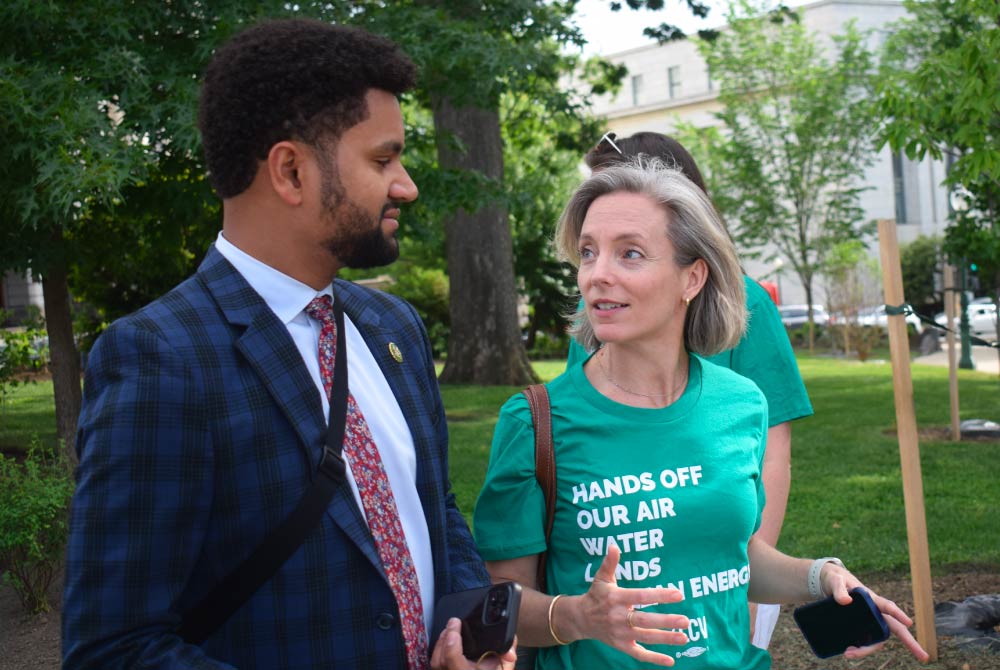
Top 5 Stories Worth Reading – June 2025
Jun 30, 2025

Hello, thanks for giving me the opportunity to testify on the Heavy-Duty Vehicle rules today. My name is Darien Davis, and I work in Government Affairs at the League of Conservation Voters, or LCV. I’m here on behalf of LCV’s members and network of 30+ state partners to urge the EPA to enact the strongest possible limits on heavy-duty vehicle pollution.
The transportation sector is the largest source of climate pollution and is a major threat to public health. Heavy-duty vehicles, like long-haul trucks and diesel buses, produce about 25% of greenhouse gas emissions and release dangerous air pollutants. The Biden-Harris Administration has the great opportunity and responsibility to enact stronger regulations limiting GHG emissions from such vehicles.
Federal clean energy investments are incentivizing automakers and battery manufacturers to build electric trucks and buses. A recent Blue Green Alliance and UMass Amherst study found that the Inflation Reduction Act’s climate and energy investments will create more than 900,000 jobs to build clean manufacturing supply chains and more than 400,000 jobs in electric vehicles and clean transportation.
Additionally, recent ICCT modeling found that IRA investments will make it possible for the purchase price of battery-electric long-haul trucks to match, and potentially surpass, diesel trucks by 2032. Major truck manufacturers are well aware of these incentives, and have committed to increasing their share of zero-emission vehicle, or ZEV, sales, eventually achieving 100% of all new vehicles sold. While the market is swiftly moving toward selling more ZEV trucks, especially buses and delivery vehicles, strong regulations are needed to make sure that this transition is done with the urgency that the climate crisis requires.
The transition to ZEV trucks and buses must not leave auto manufacturing workers behind. Manufacturers need to be honest about the reasonable cost of compliance with proposed rules, and when finalized, they should not pass those limited costs along to the workers they rely on. The Biden-Harris administration needs to continue to do everything within their power to protect workers who will be impacted by the shifts that come with the move to ZEVs. Additionally, manufacturers need to be held accountable to their workers. Solid labor policies can ultimately lead to more high-quality, union, auto manufacturing jobs here in the U.S.
Climate and air pollution from trucks is a major threat to everyone, but causes the greatest harm to those who live closest to trucking routes. More often than not, those living closest to highways are low-income communities and communities of color. The EPA has the chance to safeguard the health of these most impacted communities by finalizing the strongest possible limits on truck pollution by the end of the year. The Biden-Harris EPA is off to a good start– it needs to move swiftly to finalize the strongest possible alternative of the proposed heavy-duty standards by the end of the year.
Thank you again for the opportunity to testify.